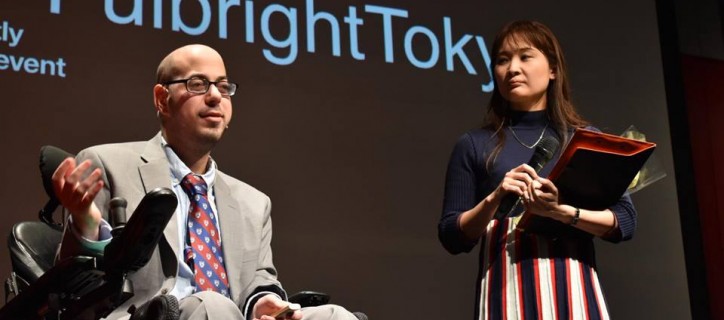Yet simply spending time in another country might not be enough. Use these tips to get started on planning for an international exchange program, so that you can get the most out of the experience.
Choosing a college and program
Credit Transfer
Ask your college about the option to transfer credits towards your major from your study abroad programs. Surprisingly, not all colleges offer students the option to continue working towards their degree while residing in another country. This makes it harder to dedicate time to gain international experience. It also can make it harder to get financial aid to study abroad, if you are not able to take classes towards your major.
Research Support
Get a sense of the kinds of support that your college offers to students with disabilities who want to study abroad. Some disability service professionals in higher education consider that the Americans with Disabilities Act does not require universities to provide reasonable accommodations overseas. Others consider that colleges should provide the same academic accommodations that they would on campus. Others may even consider assisting with disability-related housing, travel or personal care expenses on a case-by-case basis. Accommodations may be provided in collaboration with state government agencies like the Department of Rehabilitation.
FORTUNATELY, some colleges offer excellent support both on campus and overseas. Use these questions as a guide:
- Do they provide accommodations on overseas programs?
- Is there only support for academic accommodations? Or is there also support for nonacademic concerns like oxygen on flights, an accessible housing situation or access to transportation?
- Does the college use the same accommodations form that is sent to professors, or is there a process of accommodations specifically designed for overseas programs?
- Are there any disabled alumni of the college’s study abroad programs that you could meet and speak with?
By asking these questions to somebody from the disability resource Center or someone from the international education office, it will quickly become apparent whether or not the institution that you are considering has a track record of accommodating students with disabilities on its overseas programs.
Preparing for your program
Go Long
Try to commit to spending at least 6 months abroad. It takes at least this much time in order to develop some of the more long-lasting skills such as language proficiency, creativity or problem-solving.
Don’t worry if this is not an option for you. Short-term international exchanges have still been shown to increase your ability to work in a team and your levels of global engagement. Short-term exchanges can also be a great opportunity to get your toes in the water, and to build confidence for future international experience. There will always be more opportunities after you get your bachelor’s degree to complete a more extensive international exchange. Either way, the stories you tell later will have a big impact so keep reading.
Volunteer
Seek out opportunities to engage in volunteer projects or internships. Even if the main purpose of your exchange program does not include a community project, you may still be able to find opportunities. If you study abroad, ask about local organizations that need volunteers. Check if there are local companies offering internship opportunities. This way you can combine work experience with time spent in a foreign country. You might also meet new people who could serve as references or collaborators for a job or project.
Research
Conduct a research project. Spending time overseas, you have access to unique sources such as local archives, organizations, and individuals. You not only can research a host of topics which would be off-limits from home, you can also gain valuable experience towards future work in academia. Research projects can also be a great way to get involved in the local community while you meet people with similar interests.
Blog
Document your exchange experience in a blog, photo journal or video series. Cover travel, culture, tips, and lessons learned. This can be a showcase of your writing, video editing or photography skills. It can also help you boil down your exchange into a collection of stories and anecdotes that will grab your audience’s attention in an interview or resume. Just make sure to spend plenty of time practicing your delivery of those stories, so that you can get your point across.
Conclusion
International exchange can leave you with extremely valuable skills and insights that can transfer to a career, but it won’t happen automatically. As a participant you must actively seek out opportunities to develop and prove your skills. This may not only connect to your personal initiative on the program but also what the program and the sponsoring institution offers. Once you get that under your belt, you must construct a compelling narrative that demonstrates how your experience has prepared you for a career. These tips will get you started on the right path.

